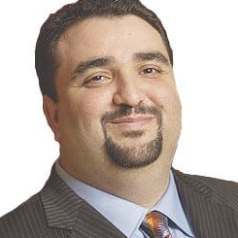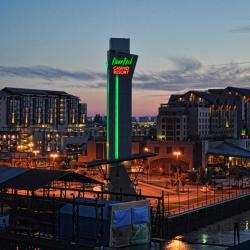Canada’s Gambling Market Worth US$13.4 Billion in 2017

Canada’s gambling market generated revenues of CA$17.3 billion (US$13.5bn) in 2017, representing a 4.9 percent improvement over the previous year, according to the latest information released by Fantini Gaming Research. The results includes the whole range of gambling products and services available in Canada, including land-based casinos, the lottery, charitable gaming, and online gambling, with the province of Ontario and its capital city of Toronto accounting for a massive 43 percent of all gambling revenues produced last year.
Individual Markets
In addition to dominating Canada’s gambling industry with CA$7.445 billion in 2017, Ontario also reported a 12 percent increase in gambling revenues compared to 2016, making it the country’s fastest growing market.
Meanwhile, Quebec was the second biggest market with $3.6 billion in earnings, up by 2.12 percent year-on-year; followed by British Columbia with $3.14 billion, up by 1.36 percent versus the previous year. However, the westernmost province of Canada is likely to receive an extra boost in 2018 after the $640 million Parq Vancouver opened on September 29, 2017, with its two-floor casino now offering 600 slots and 75 gaming tables.
Ontario Privatizing Casinos
According to Fantini Gaming Research analysts, the Ontario Lottery and Gaming Corporation (OLG) has helped the province’s gambling market grow at an impressive rate through its privatization program. Up until recently, Canada’s gambling services had been run at a federal level, including casinos, lotteries, racing, online gambling and sports betting. In recent times, though, its market has experienced falling revenues caused by a proliferation of online gambling activities in Canada, as well as a casino boom in the United states which attracts thousands of Canadian visitors each year. Consequently, Ontario is currently fielding investments from the private sector in the hope of reviving its own gambling market, and restoring it to its full potential once again.
In addition, Ontario has embarked on a large scale modernization program, with its projects including renovating its brick-and-mortar casinos, as well as improving its lottery business by supplying new video terminals to outlets.
BC Money Laundering Concerns
In 2017, British Columbia Attorney General David Eby (photo) tasked lawyer Peter German with launching an investigation into money-laundering activities thought to be taking place at the province’s casinos. Attracting particular attention was the River Rock Casino in Richmond which in July of 2015 received $13.5 million in $20 bills, which police believe came from the proceeds of crime.
This month, the federal committee subsequently started reviewing the country’s Proceeds of Crime and Terrorist Financing Act, and are currently considering introducing harsher penalties for money-laundering. Against this backdrop, Eby has requested that the federal government should make more tools available to provincial police in order to help them better track financial crimes. One such suggestion includes Canada’s anti-money laundering (AML) agency coordinating its information more closely with local police, with Elby stating:
“Through agencies like the Financial Transactions and Reports Analysis Centre of Canada, Revenue Canada and the federal RCMP, the Government of Canada has a major role to play in combating money laundering.”
March AML Report
At the end of March, Peter German is expected to release his report that is commissioned by the Attorney General and probes British Columbia’s gambling industry. As mentioned, the River Rock Casino is one of the establishments at the center of the investigation, and in addition to a high amount of low denomination bills being wagered at the casino, questions have been raised about numerous large cash deposits having being made there without their origins being declared.
Also being investigated is suspicious activity at the River Rock Casino’s high-stakes table games, where a number of customers lost huge amounts of money on single wagers. Furthermore, in 2016, the venue paid out more than 20 large cheques to players, many of whom apparently did not gamble at the casino, but merely made deposits into their casino accounts.
In February, B.C.’s attorney general David Eby then decided to extend his investigation beyond casinos, with the province’s real estate market becoming its next target. According to allegations, money made from the painkiller fentanyl is being loaned by dealers to wealthy Chinese tourists in order to purchase Canadian properties, which are then used as collateral. In this way, criminals are able to have their money cleaned when their loan is repaid, or the property in questions is sold.
“The nature of these allegations, that this money-laundering activity is actively influencing our real estate market and is connected to the sale of life-destroying fentanyl, underline the critical importance of addressing money laundering urgently and not ignoring it,” explained Eby in a statement.










